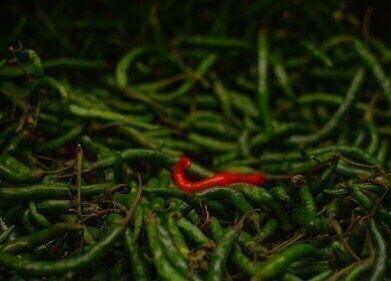Columns (GC)
Did Lockdown Affect the Venetian Lagoon? - Chromatography Investigates
May 30 2021
The SARS-CoV-2 virus and resulting coronavirus-2019 disease have had a major global impact. Since the virus first became known in December 2019, a global pandemic was declared by the World Health Organization in March 2020 and there have been almost 150 million cases of Covid-19 and over 3.1 million deaths attributable to the disease.
Before vaccination became the prime method of controlling outbreaks of the virus and disease, measures such as improved hygiene, social distancing and in extreme cases lockdowns have been the primary means of control. But besides controlling the spread of the virus, lockdowns also had a dramatic effect on the environment. A recent paper published in the journal Science of the Total Environment reports on the effects of lockdowns on the UNESCO World Heritage site Venice and its Lagoon, and chromatography was a key component in the work.
Venice and the Lagoon
Venice and its Lagoon was added to the UNESCO World Heritage List in 1987 in recognition of its unique historical, architectural, urban, and artistic heritage integrated into an extraordinary natural environment. The city was founded in the 5th century and is spread over 118 small islands of which Venice and Sant’ Erasmo are the largest. The lagoon is the largest wetland in the Mediterranean Basin and covers 550 square kilometres, 8% is land including Venice, and 11% is permanently covered by water – the canals.
Human intervention in the fifteenth and sixteenth centuries reversed the natural evolution of the lagoon into marsh; with more modern engineering solutions required to keep the islands habitable. Pollution and environmental issues in the lagoon have long been a problem. Phytoplankton and algal blooms have caused problems due to increased nutrients in the water. But also, air pollution, surface water pollution and decreasing water quality have all affected the lagoons.
A cleaner lagoon
Venice’s lagoon is continuously evolving. It is also one of the top tourist destinations in the world with millions of tourists and countless cruise ships visiting every year. Unfortunately, the tourism brings increased pollution, emissions, and sewage releases. This can have a major impact on the ecosystem of the lagoon. But the lockdowns due to Covid-19 seemed to have an impact on Venice and the Lagoon too. Suddenly the water was clearer. Was it cleaner too?
Previous studies had measured the levels of pollutants in the lagoon, but the lockdown allowed scientists the chance to analyse the impact of tourism, or in this case no tourism. They analysed the volatile organic compound load in the lagoon using Head Space-Solid Phase Micro Extraction-Gas Chromatography-Mass Spectrometry (HS-SPME-GC-MS). The use of GC is discussed in the article, Gas Chromatography Troubleshooting Part I – Peak Shape Issues. When compared to results from August 2019, they found that 17 contaminants were undetectable during the lockdown but nine were unchanged. The results show that there was a sharp pollution decrease that was concomitant with reduced anthropogenic stress on the environment.
Digital Edition
Chromatography Today - Buyers' Guide 2022
October 2023
In This Edition Modern & Practical Applications - Accelerating ADC Development with Mass Spectrometry - Implementing High-Resolution Ion Mobility into Peptide Mapping Workflows Chromatogr...
View all digital editions
Events
ACS National Meeting - Fall 2024
Aug 18 2024 Denver, CO, USA
Sep 04 2024 Chiba, Tokyo, Japan
Sep 04 2024 University of Warwick, Coventry, UK
Sep 10 2024 Rockville, MD, USA
Plastics Recycling World Expo Europe
Sep 11 2024 Brussels, Belgium














